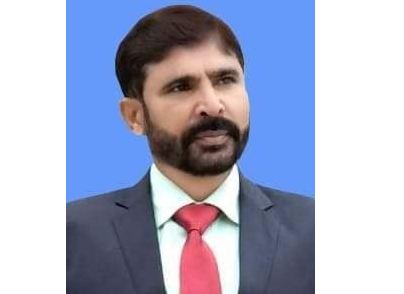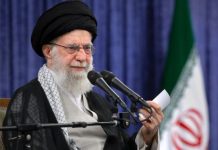Dr. Muhammad Akram Zaheer
The geopolitical environment of Eastern Europe and the South Caucasus is undergoing significant transformation, with Romania and Armenia emerging as pivotal actors in their respective regions. Both countries are navigating complex security environments shaped by historical alliances, emerging threats and shifting global power dynamics. Romania, a key regional ally of the United States, is actively enhancing its defense capabilities and solidifying its strategic partnership with Washington. Meanwhile, Armenia, historically aligned with Russia, is attempting to reorient its foreign policy towards the West, a move fraught with challenges due to its longstanding dependencies on Russia and its regional isolation.
Romania’s strategic importance in Eastern Europe cannot be overstated. As a member of NATO and the European Union,Romania occupies a crucial position on the southeastern flank of the alliance, bordering the Black Sea, Ukraine and Moldova. In response to growing security concerns, particularly those arising from Russia’s assertive foreign policy and military activities in the region, Romania has significantly increased its defense spending. In recent years, the Romanian government has committed to raising its defense budget to 2.5% of its GDP, surpassing the NATO guideline of 2%. This increase in defense spending reflects Romania’s commitment to bolstering its military capabilities and enhancing its role within NATO.One of the key aspects of Romania’s defense strategy is its focus on acquiring advanced military equipment from the United States. This acquisition process is part of a broader effort to modernize the Romanian Armed Forces and ensure interoperability with NATO allies. Romania has made substantial investments in procuring state-of-the-art military hardware, including Patriot missile defense systems, HIMARS rocket artillery systems and F-16 fighter jets. These acquisitions not only enhance Romania’s defensive capabilities but also reinforce its strategic partnership with the United States, further embedding the country within the Western security architecture.
Romania’s defense strategy is not solely focused on external acquisitions; it also aims to revitalize the domestic military industry. The Romanian government has prioritized the development of its defense sector to reduce dependency on foreign suppliers and to create a sustainable, self-sufficient defense industry. This initiative includes fostering partnerships between domestic defense companies and international firms, promoting research and development in military technology and investing in the production of indigenous defense systems. By strengthening its domestic military industry, Romania seeks to enhance its strategic autonomy while contributing to the broader defense capabilities of the NATO alliance.In addition to bolstering its defense capabilities, Romania is actively expanding its security cooperation with neighboring countries, particularly Ukraine, Moldova and Bulgaria. The security environment in the Black Sea region has become increasingly volatile due to the ongoing conflict in Ukraine and Russia’s military presence in the region. Recognizing the need for a coordinated regional response, Romania has sought to deepen its security ties with Ukraine, which is on the frontlines of the conflict with Russia. This cooperation includes joint military exercises, intelligence sharing and collaboration on cybersecurity and border security. By working closely with Ukraine, Romania aims to enhance regional stability and counter the security threats posed by Russia.
Romania’s security cooperation extends beyond Ukraine to include Moldova and Bulgaria. Moldova, which shares a long border with Romania, is a key focus of Romanian foreign policy. The two countries have deep historical and cultural ties and Romania has been a strong advocate for Moldova’s European integration. In the security domain, Romania has provided assistance to Moldova in areas such as military training, defense reform and border security. Romania’s support for Moldova is part of a broader strategy to promote stability and security in the region, particularly in the face of potential Russian influence in Moldova.Similarly, Romania’s security cooperation with Bulgaria is driven by the shared goal of enhancing regional security in the Black Sea area. Romania and Bulgaria, both NATO members, have participated in joint military exercises and have collaborated on initiatives aimed at strengthening the alliance’s eastern flank. This cooperation is critical in the context of the broader geopolitical challenges facing the Black Sea region, where both countries are working to counterbalance Russian military activities and ensure the security of NATO’s southeastern border.
While Romania is deepening its ties with the West, Armenia is embarking on a challenging journey of foreign policy reorientation. Historically, Armenia has been closely aligned with Russia, both as a member of the Collective Security Treaty Organization (CSTO) and through its reliance on Russian military and economic support. However, recent developments have prompted Yerevan to reconsider its strategic alliances and seek closer ties with the West.Armenia’s reorientation towards the West is driven by several factors. First, the Nagorno-Karabakh conflict, particularly the 2020 war with Azerbaijan, exposed the limitations of Armenia’s reliance on Russia. Despite being a treaty ally, Russia’s response during the conflict was perceived by many in Armenia as inadequate, leading to a loss of confidence in Russia as a reliable security guarantor. This has fueled a growing desire in Armenia to diversify its foreign policy and reduce its dependence on Russia.Second, Armenia’s domestic political scene has shifted in recent years, particularly after the 2018 Velvet Revolution, which brought a new government to power with a reformist agenda. The current Armenian leadership has shown a greater willingness to engage with Western institutions and to pursue closer ties with the European Union and the United States. This includes efforts to strengthen democratic governance, enhance the rule of law and improve human rights, all of which are key areas of cooperation with Western partners.However, Armenia’s foreign policy reorientation is not without significant challenges. The country’s deep-seated dependencies on Russia, particularly in the security and energy sectors, pose substantial obstacles to a full-fledged pivot to the West. Armenia’s membership in the CSTO and its reliance on Russian military bases and arms supplies complicate its efforts to realign its security policy. Moreover, Russia remains a dominant player in the South Caucasus and any shift in Armenia’s foreign policy could provoke a strong reaction from Moscow, potentially jeopardizing Armenia’s security and economic stability.
Another major challenge for Armenia is its regional isolation. For decades, Armenia has been in a state of conflict with Azerbaijan and Turkey, leading to the closure of its borders with both countries. This has limited Armenia’s access to regional markets and trade routes, exacerbating its economic vulnerabilities. To successfully reorient its foreign policy, Armenia must find ways to overcome its regional isolation, which may require difficult compromises, particularly in its relations with Azerbaijan and Turkey.Despite these challenges, Armenia is gradually building new partnerships with Western countries. The European Union has become an increasingly important partner for Armenia, providing financial assistance, technical support and diplomatic backing for Armenia’s reform agenda. The Comprehensive and Enhanced Partnership Agreement (CEPA) between the EU and Armenia, signed in 2017, is a key framework for deepening political and economic ties. Similarly, Armenia has sought to enhance its relationship with the United States, particularly in areas such as defense cooperation, democratic governance and economic development.
Romania and Armenia represent two distinct but significant cases of regional actors navigating complex security and foreign policy environments. Romania, as a staunch ally of the United States, is focused on strengthening its defense capabilities, expanding its strategic partnership with Washington and enhancing regional security through cooperation with its neighbors. In contrast, Armenia is attempting a delicate foreign policy reorientation towards the West, a move that requires overcoming deep-seated dependencies on Russia and addressing longstanding regional challenges. Both countries’ efforts to adapt to the evolving geopolitical environment underscore the broader shifts occurring in Eastern Europe and the South Caucasus, with implications for regional and global security.

















